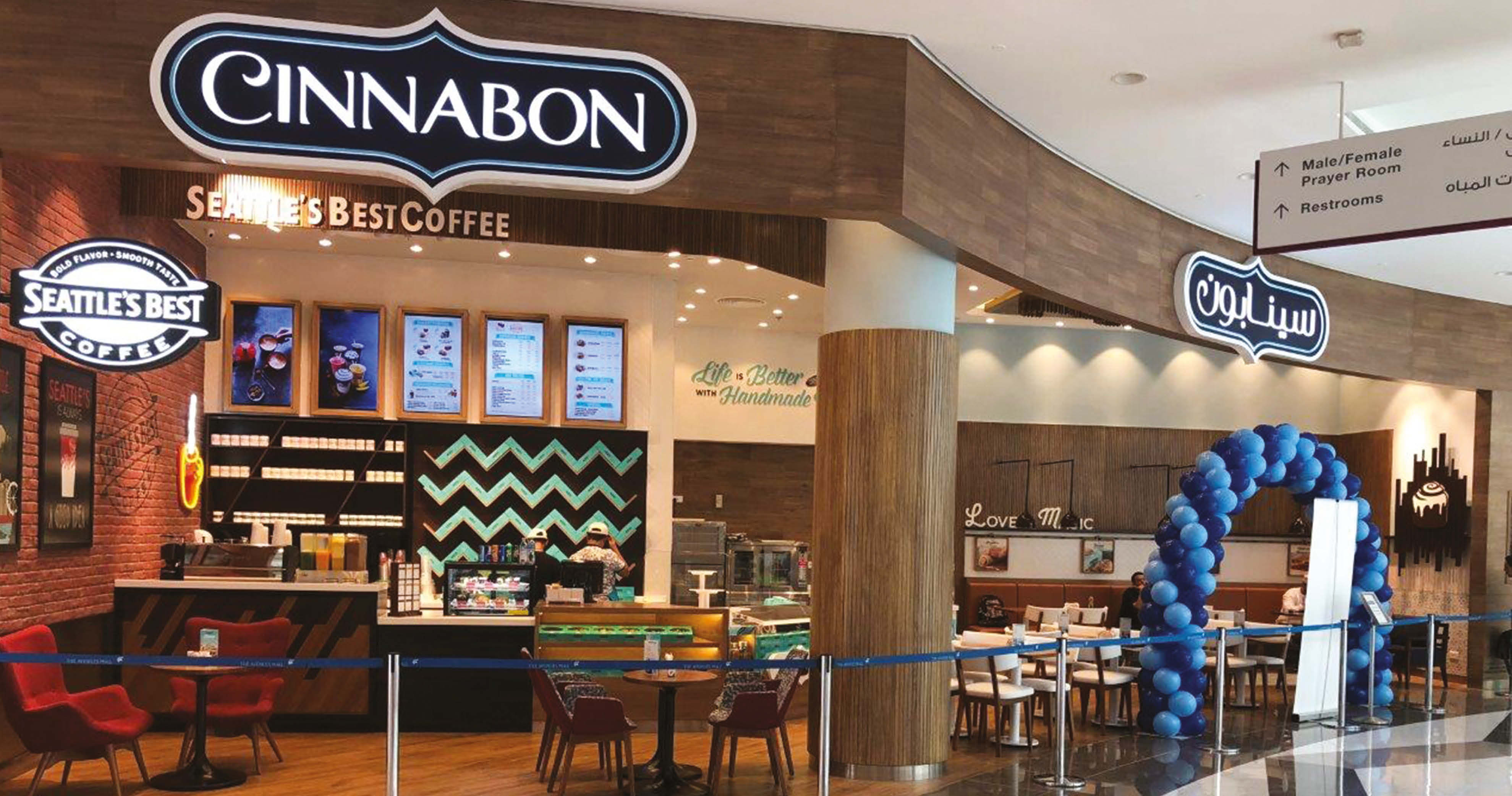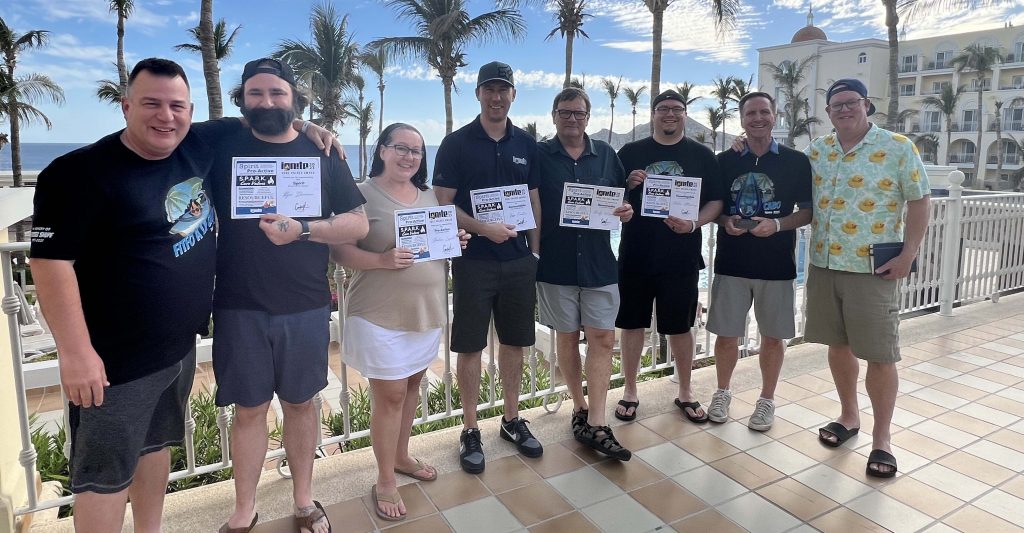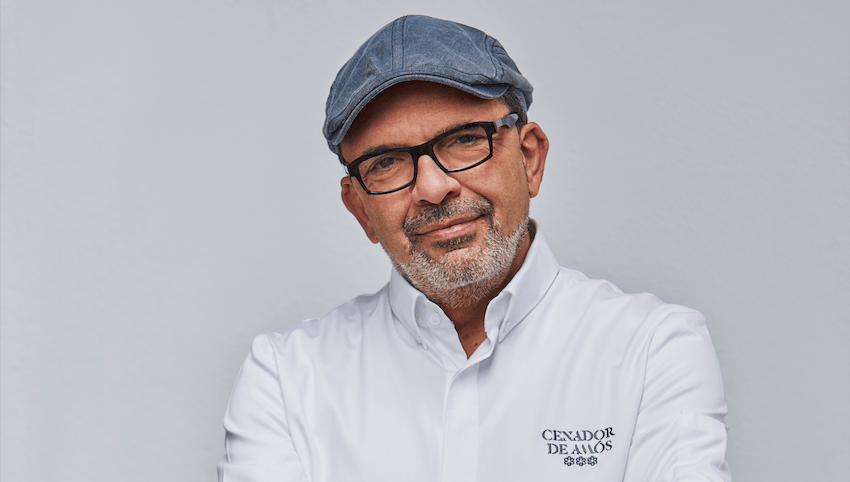
Beto Guajardo joined FOCUS Brands in September 2019 as president of Schlotzsky’s but less than a year later that he was tapped to become president of FOCUS Brands International. In April 2020, smack in the middle of the global Covid-19 pandemic, he assumed his role at the parent company that includes Auntie Anne’s, Carvel, Cinnabon, Jamba, Moe’s Southwest Grill, McAlister’s Deli, Schlotzsky’s, and Seattle’s Best Coffee.
 Guajardo (pictured) is no stranger to working with brands internationally. Prior to joining FOCUS, he served as senior vice president of global strategy for Starbucks for just over five years. His career has also brought him international experience with major brands like McKinsey, Levi Strauss, and Avon, even living in Hong Kong for a time. He has experience of working with over 40 countries, so even in the midst of a pandemic, he was well-suited to the role.
Guajardo (pictured) is no stranger to working with brands internationally. Prior to joining FOCUS, he served as senior vice president of global strategy for Starbucks for just over five years. His career has also brought him international experience with major brands like McKinsey, Levi Strauss, and Avon, even living in Hong Kong for a time. He has experience of working with over 40 countries, so even in the midst of a pandemic, he was well-suited to the role.
FOCUS Brands currently has six of its brands – Cinnabon, Auntie Anne’s, Carvel, Jamba, Seattle’s Best, and a small portion of Moe’s Southwest Grill in 60 countries, 1,700 stores and growing. When Guajardo assumed the role in April, many countries were in a state of full lockdown. His first priority? Getting to know the franchisees and build relationships.
“Covid-19 made this so much more difficult to do,” says Guajardo, “It was hours and hours of Zoom calls. It felt like it was 24/7.” But he knew it was imperative to his success to build trust and understand quickly how they could best support the individual businesses. “All parts of the world were going through the pandemic at different phases and treating it in a different way,” he says, and it was challenging. “Information coming out of a country wasn’t always clear about what they were dealing with and how consumer behaviors had shifted or changed without having the boots on the ground.”
In many cases they had to rely only on information from public news sources or information passed along by their franchisees. “Taking this on during a pandemic added layers of complexity you never would have expected,” he says.
Regardless of the state of the world, it was a priority to help franchisees shift into this new normal. They set up a royalty deferment program and allowed them to have a payment plan moving forward.
Many of the FOCUS brands locations were in high traffic areas – malls, airports, lobbies of buildings – often the places that were shut down first during the pandemic. And unlike the US, in many countries, if an employee was let go, there was no federal economic support, so naturally, they went to look for jobs elsewhere. Losing the majority of your employees when a closure is announced, and then ramping back up when you reopen is difficult if your workforce disappears.
A shift in strategy
Across the world, an uptick in delivery started happening as consumers were leaving their houses less. Pre pandemic less than 25% of the international locations were doing delivery. This is where Guajardo’s experience at Starbucks, leading a team on international delivery, came in handy.
They decided to go the third-party delivery route and negotiated to get the lowest pricing possible while working with the franchisees to price correctly to recover cost. It was imperative to also look at labor costs to offset some of this.
They asked questions like: “Do you need to have the same hours if people aren’t walking in the store? And “Do you need to staff a lobby if nobody is walking in?” They also worked to meet standards of packing for delivery with tamper proof packaging implemented across the board. “We’d much rather have first-party delivery if we could, but third-party delivery is where consumers are going to go to satiate their desires,” he admits.
Delivery was very well received across the world and to date, now 97% of units that can deliver are doing so and for some locations delivery has accelerated past 30% of the business. Delivery did particularly well in Malaysia, Russia and Indonesia.
One of the challenges with product delivery for their brands – particularly Auntie Anne’s and Cinnabon – is the delivery radius. For FOCUS, the radius isn’t measured in distance, but in time. “Time is the enemy of quality when it comes to food,” he says. “Getting a hot cinnamon roll or a hot pretzel is key.” They set under 20 minutes as an ideal delivery time.
Cinnabon has been the strongest performer in the delivery market since the pandemic began. “We found that people seek out those experiences with a strong emotional response,” he says. Many people cite the strong smell of cinnamon wafting from any location, many of them in places people would gather with family and friends.
“We found consumers using delivery to invoke those experiences of sharing and caring and being together,” he says. “They started sending Cinnabon as gifts.”
Challenges
Many of the challenges they faced concerned setting up safety protocols in each country. “Domestically, FOCUS brands stuck to some of the strictest protocols out there – social distancing, masks, hand sanitizing etc.” Although they shared the strict protocols with international franchisees, ultimately the decision fell to the minimum operating standards in each country. “We didn’t force it and left it to local regulations,” says Guajardo. “We need to be culturally sensitive and sensitive to the pace of change the pandemic brought on in different parts of the world.”
For example, in Taiwan, people are shopping and going to restaurants, while countries such as the UK and the Philippines have experienced multiple surges and lockdowns. Where they haven’t struggled much is with supply chain. They credit that to using local as much as possible.
“When we decide to enter into a market, even before we figure out our investors, we go to that country and lay the groundwork for supply.” He says. That includes having both primary and secondary sources locally, minimizing the amount they need to ship across borders.
Growth and closures
Even in a time of disarray and uncertainty they’ve been able to keep many of their opening goals. Of course, closures were inevitable, but, according to Guajardo, “the number of closures we had due to Covid-19 was only slightly more than we’d expect any given fiscal year.”
The team opened more than 100 units this year, sticking more or less to their global development schedule. A few notable openings included Auntie Anne’s in Taiwan and Jamba Juice in Japan.
Early in the pandemic when lockdowns were prolific around the world, the team redirected their efforts towards an exhaustive research study with their markets and brands to find where the potential was. This detailed analysis, which looked at consumer preferences, risk factors, economics, and ease of doing business allowed them to create a pretty solid priority list for the next 5-10 years.
Part of that strategy is realizing “convenience is the new luxury,” and that will include central delivery facilities, or ghost kitchens. “How do we get our product closer to the consumer with an experience that’s still a delight from a quality and experience perspective, but limits the distance between where we finish production and get it to the consumer,” he says.
It also became clear that global locations that can act local have a leg up on the competition. “Those stores that built strong relationships in the community they operate in and don’t just rely on traffic intercept, they are the survivors,” he says.
Moving forward they will focus on products, promotions and marketing campaigns that are really targeted at the local store level. Knowing that after the pandemic there will be some changes in consumer behavior, they are monitoring new real estate points – planning to open in a new outdoor drive-thru mall in Egypt and recently opening a Cinnabon in the UK’s Euro Garages.
Even if things have been rocky during the pandemic, the strategy at FOCUS is solid and it was able to weather the storm better than other companies.Guajardo reflects: “Some of those tried and true strategies working closely with your partners to execute, leaning into data and analytics and only spending money where you know you’ll get a return and that return is measurable.”
So, FOCUS’s growth plans will remain as aggressive as before the pandemic. It will look to grow its current international brands. That will include expanding the international footprint of Moe’s Southwest grill in a market like Australia where Mexican food with a Southwestern flair has caught on. It is considering potential expansion in the UK as well. It’s starting to look at other domestic brands such as McAllister’s and Schlotzsky’s for international expansion in both the European markets. China is a target as well for any FOCUS brands. New innovations on the horizon for Auntie Anne’s and Cinnabon will make them attractive for further expansion as well.
“We have a priority list for the next 5-10 years for new market entry and aggressive expansion where we already exist,” he says. ‘We are very hopeful and excited.”
Samantha Lande





